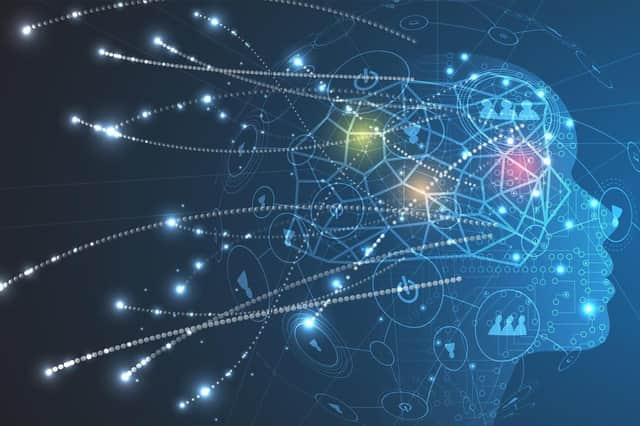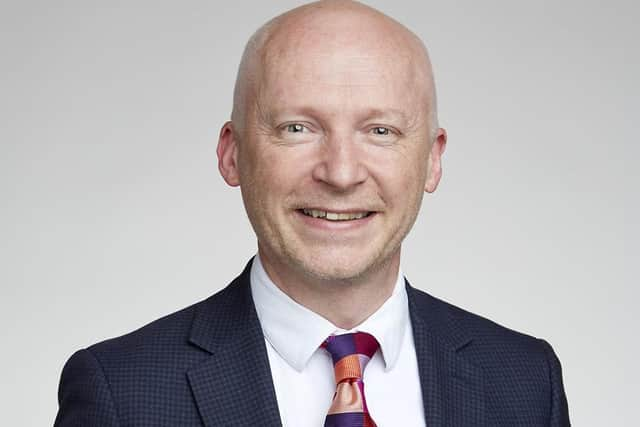Marcus du Sautoy on how AI and humans can best work together


In his latest book The Creativity Code – How AI is Learning to Write, Paint and Think - Marcus du Sautoy asks whether artistic abilities are exclusive to our species, or whether artificial intelligence (AI) algorithms can learn the patterns and structures of our inspiration. And if they can, will they eventually reproduce and surpass human genius? Scottish Mortgage joint manager at Baillie Gifford Tom Slater talked to Professor du Sautoy about how artificial creativity could change how we live our lives.
Tom Slater: Am I going to be replaced by a machine?
Marcus du Sautoy: The AI revolution is happening, and we are at a significant turning point. Everyone is comparing it to the Industrial Revolution but the effects of that were felt over two generations. This one is way faster. It’s happening over 10 years.


Investment is all about data, so it should be the perfect place for AI to make inroads. But while AI is often better than a human, the combination of human and AI is usually better than either.
TS: Your mathematical ‘hunches’ are based on recognising familiar patterns, as mine are in investment. Can machines distil such inklings into intuition?
MdS: In the past computing power was a matter of brute force: By analysing so many chess moves into the future of course it’s going to have an edge. But that was top-down-style coding when you know what you want to do, you code it up and you exploit the computer’s depth of analysis.
Now we have bottom-up-style coding where you allow the code to ‘learn’ and adapt in the same way we do. Intuition comes from exposure to lots of different stories and seeing certain types of stories reappearing and others that are exceptional. Computers can work in 50 dimensions and see connections that are hard for us, limited to a three-dimensional world.
TS: What we defined as human intelligence turned out to be things machines are better at: logic, chess or the game of go. Have we been wrong about what makes up human intelligence?
MdS: We do think of creativity as something uniquely human. But ultimately, even consciousness may not be something that is special to us as a species. It may be way down the line, but I do think there will be a point when consciousness appears in a machine. The intriguing question is how much can you fast track the extraordinary thing that we produced as humans, our brain?
How much will the AI, which is clearly extraordinary in the things it is able to learn, be limited because it hasn’t gone through the millions of years of evolution our brains have? Obviously we can speed up its evolution, but can we speed it up to achieve ‘consciousness’?
TS: Do you think our kids’ generation will be better than us at resisting manipulation through targeting of data?
MdS: With knowledge of how our brains can be easily misled comes the power to recognise when it’s happening to you. We are at a moment where technology is very powerful and those who know how to use it are gaining incredible power. That is why it’s so important that we have as many people as possible explaining what is going on, so we don’t become victims.
But I don’t think we should be too down on AI. Any powerful new tool contains potential good and bad. We can’t put this back in the box. What we need to do is make sure we understand what’s going on.
TS: AI-plus-human is best, say for spotting skin cancers. But if you are one of the 6 billion people who don’t have access to a dermatologist, might AI on its own be a stopgap answer?
MdS: Yes, it has the potential to promote social inclusion. We have to make sure we don’t find ourselves creating a two-tier system where there’s people with access to AI benefits and people who don’t - that’s why I think a ‘data commons’ of free shared data is an important component of what’s required. We need to allow as many people as possible access to use this technology for the common good.
Marcus du Sautoy is Professor of Mathematics at the University of Oxford. His book The Creativity Code – How AI is Learning to Write, Paint and Think is published by 4th Estate (hardback: £20).
A longer version of this article first appeared in Baillie Gifford’s Trust magazine which you can find at www.bailliegifford.com/trust